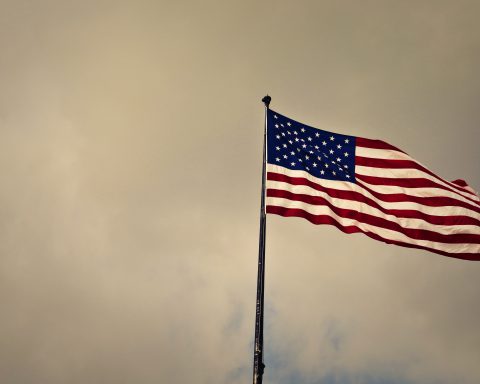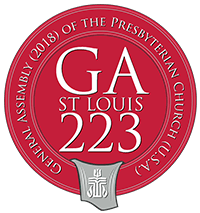In this issue, “Honest Patriotism,” Unbound will challenge widespread assumptions regarding what it really means to love one’s country. This opening editorial introduces the concept of honest patriotism; examines its practical implications; and closes with a hymn that, for Managing Editor Henry K. Stone, represents patriotism at its logical and moral conclusion: a prayer for all peoples.
Honest Patriotism: An Introduction

(PC: Ilana Urman)
What does it really mean to be a patriot? A lot of things get thrown into the word.
For some, patriotism it is synonymous with loyalty, for others with freedom. It carries tones of sacrifice, and most especially of pride. It is far rarer that we consider patriotism as a call to be humble about, or wary of, the state of our nation.
To me, though, it seems the true measure of patriotic love is not pride, but instead the kind of honest love that holds a country to the highest standard. After all, whether it is a person or a nation that you love, it does not serve them well to ignore their mistakes. Honesty distinguishes actual love from pride.
Constant and unconditional pride, even when leaders sow division and needless hostility, would not represent a real relationship with one’s country…it would be a lie. Defining patriotism as love, on the other hand, allows for a relationship with our country that is active, demanding, and sometimes critical—which brings us to the theme of the upcoming issue of Unbound: Honest Patriotism.
___________________________________________
Constant and unconditional pride, even when leaders sow division and needless hostility, would not represent a real relationship with one’s country…it would be a lie.
___________________________________________
Having defined patriotism (in part) by honesty, the natural follow-up question is, “What does it mean to be an honest patriot in practice?” It is more than simple truth-telling—essential as that is. In this issue, we will firstly focus on the everyday patriotic acts of telling uncomfortable truths, admitting fault, and embracing a collective responsibility for resolving the inconsistencies between our country’s lofty, aspirational ideals and its deeply flawed, human reality. We implore all readers—no matter who you are, or what brought you here—to join us in resisting the pseudo-patriotism, based on false premises and self-aggrandizement, that turns to toxic nationalism for support instead of truth.
 To start, we invite you to examine a draft statement for the 223rd General Assembly of the Presbyterian Church (U.S.A.), which outlines principles for truth-telling by citizens—principles reinforced by the First Amendment, Calvin, and other sources. We will welcome your comments (submit them HERE) leading right up to Thanksgiving—a time to take particular care in not allowing a nationalistic view of history to overwhelm our awareness of a frequently divided past and present. (As a counter to passive nationalism, Thanksgiving worship services of unity including Roman Catholics and Jews were important steps in accepting the welcome presence of diverse American religious traditions. May this tradition continue to broaden our perspective, and may we embrace disparate immigrants this year.) Secondly, we will have a complementary track of articles dedicated to the writings and life of Donald Shriver, the Christian social ethicist who wrote the book Honest Patriots: Loving a Country Enough to Remember Its Misdeeds (2005), for which he won the Grawemeyer Prize. His book addresses patriotism as the kind of rooted love that cannot disown or deny grim parts of the past. As we get deeper into this issue, Unbound General Editor Chris Iosso will introduce Shriver’s work and a second track of articles which provide a foundational view of patriotism and related social-moral matters.
To start, we invite you to examine a draft statement for the 223rd General Assembly of the Presbyterian Church (U.S.A.), which outlines principles for truth-telling by citizens—principles reinforced by the First Amendment, Calvin, and other sources. We will welcome your comments (submit them HERE) leading right up to Thanksgiving—a time to take particular care in not allowing a nationalistic view of history to overwhelm our awareness of a frequently divided past and present. (As a counter to passive nationalism, Thanksgiving worship services of unity including Roman Catholics and Jews were important steps in accepting the welcome presence of diverse American religious traditions. May this tradition continue to broaden our perspective, and may we embrace disparate immigrants this year.) Secondly, we will have a complementary track of articles dedicated to the writings and life of Donald Shriver, the Christian social ethicist who wrote the book Honest Patriots: Loving a Country Enough to Remember Its Misdeeds (2005), for which he won the Grawemeyer Prize. His book addresses patriotism as the kind of rooted love that cannot disown or deny grim parts of the past. As we get deeper into this issue, Unbound General Editor Chris Iosso will introduce Shriver’s work and a second track of articles which provide a foundational view of patriotism and related social-moral matters.
Family, Courage, and “Taking a Knee”
When I was very young, I learned from my parents that “I love you” and “I agree with you” are very different statements. The one was unconditionally true, and the other… less common.
My family loves to debate—and I am often the worst instigator among us on that front, willing to go on for half an hour about the best word to describe a situation, or arguing that another family member is right for the wrong reasons. Sometimes my own determination to be right or to make a point can frustrate people. But I thank God for a family that is willing to call me out for it on occasion—we Koenig Stones try always to be real with each other. Our tiny clan depends on honesty to function.
Trusting in our love, our commitment to a form of unity, frees us to complain to each other and to change when needed. We have learned to disagree with each other constantly in the minutia without diminishing our common care for each other’s wellbeing in every aspect of life. If unity is built on trust, then in large part we are indivisible because we are honest with each other in our critique, as well as in our unconditional love.

Imagine—just for one, impossibly idealistic moment—a world in which the United States of America is full of folks willing to treat each other as a loving, bickering family…in which every person is perhaps as obnoxiously argumentative as a certain managing editor and also as unconditionally committed to loving each other as Little Karl Miller (our family dog).
To me, it’s a pretty picture.
Here’s the honest and uncomfortable truth, though. While we may sometimes get it close to right at the family level—and my family is certainly not alone in this—we have never gotten (and likely will never get) anywhere close to that level of loving trust in the United States of America. Even most good neighbors have fences of some kind. But we should at least be able to trust that leaders and media figures are striving to tell the truth—even if we don’t love or like them at all. Our country—and the conditions it protects—should call all citizens to truthfulness. (That is the intended function of the First Amendment!)
Unfortunately, there are too many things about which we are not willing to talk. Too many places where we’re not willing to listen and trust. Too many ways in which our individual comforts, and the comfort of subgroups within America, have outweighed the needs of other citizens.
___________________________________________
Ignoring the suffering of fellow citizens because “it’s not the right time to talk about it” is not patriotism. Patriotism is speaking truth in the face of lies, and demanding that those with the power for change live up to the ideals they pretend to defend.
___________________________________________
To me, so long as distrust reigns, true American patriotism has a gaping hole in the middle. Ignoring the suffering of fellow citizens because “it’s not the right time to talk about it” is not patriotism. Patriotism is speaking truth in the face of lies, and demanding that those with the power for change live up to the ideals they pretend to defend. Patriotism is crying foul loudly wherever the system may be rigged—through protest, through civil disobedience, or through other free speech. Patriotism is acknowledging mistakes and attempting to fix them. And patriotism is doing all of this for someone else. It’s time to stop pretending that what ails one member of society has no implications for the rest of us.
It is all too clear what you can do for your country…and what you can do for “the least of these,” whom we see at the deepest level as siblings in Christ. As an example, let us pick a concern that is frequently put in a polarized frame: earlier this month was National Coming Out day.
___________________________________________
I know that I am guilty in the past of having downplayed my comfort with LGBTQ persons to avoid even subtle tension with other people of faith. But dodging these conversations does no one justice in the long run.
___________________________________________
In my view, one of the most courageous and intrinsically patriotic acts is to subject oneself voluntarily to the unjust character assassinations—and, often, physical violence—that LGBTQ people face every day in this country. The simple act of going to a night club remains more dangerous for gay and lesbian friends than it is for me. But the cumulative process of truth-telling has brought great advance to our society, making it harder to tell lies about LGBTQIA people.
How much easier than coming out it is for people of faith to speak out on their behalf!
Yet, though I have never criticized someone for being LGBTQ, I know that I am guilty in the past of having downplayed my comfort with LGBTQ persons to avoid even subtle tension with other people of faith. But dodging these conversations does no one justice in the long run, and viewing this small personal cost against the backdrop of the courage needed to come out as LGBTQ only emphasizes that point.
The LGBTQ rights conversation is hardly a unique case, however—we dodge the honest truth all the time when it comes to privilege and inequality of power, often just by changing the terms of the debate. Take Colin Kaepernick, for example. Firstly: Kaepernick’s protest was never intended to disrespect U.S. troops or veterans. (Below, see veteran Nate Boyer speaking to Kaepernick’s patience and flexibility in trying to find a balance between respect and honest witness).
More importantly, ignoring the centuries of continuing violence which sparked Kaepernick’s action is a profound lie of omission. Honest patriotism does not hide behind rituals as an excuse to ignore injustice—no matter how precious those rituals may be (whether on a football field or in the church!) In fact, honest patriotism may require of us new rituals of respect and mutual acceptance.
Another current area of the personal and the political coming together is in the dialogue following #MeToo, which demands a new type of honesty on the part of men in positions of power over women. (See my previous thoughts on that issue HERE.)
In exploring Honest Patriotism throughout this issue, naturally we cannot do justice to the range of experiences that make up the US American experience. But together we can try! Even now, as we begin this issue, we invite YOU to contribute further articles addressing injustices that are hard to be honest about. Honest patriotism is partly about the bravery of confession and apology.
Where do more of us need to “take a knee?”
A Postscript in Song
The honest love which constitutes true patriotism requires a perspective which, though grounded in a particular place, also transcends the love of this one country, or of any one group of humans, and speaks to a broader love of the human soul.
On that note, there is only one honest way for this singer, patriot, and Christian American to close an introduction to Honest Patriotism, and that is by sharing what are, to me, the most sacred set of patriotic verses set to tune.
THIS IS MY SONG (As in the Hymnal, “Glory to God”)
(Jean Sibelius – 1899 / Words: Lloyd Stone – 1934[1]) Tune: Finlandia
This is my song, O God of all the nations,
A song of peace for lands afar and mine.
This is my home, the country where my heart is,
Here are my hopes, my dreams, my holy shrine.
But other hearts in other lands are beating,
With hopes and dreams as true and high as mine.
My country’s skies are bluer than the ocean,
And sunlight beams on clover leaf and pine.
But other lands have sunlight too, and clover,
And skies are everywhere as blue as mine.
O hear my song, thou God of all the nations,
A song of peace for their land and for mine.
This hymn reminds me that, while division may always remain a useful tool for gaining power, it will never be a force of patriotism. Patriotism should always seek the “house united” that shelters and empowers all citizens to share equally in prosperity, in love, and in justice.
***
AUTHOR BIO: Henry Koenig Stone serves in Louisville, KY as current Managing Editor of Unbound and Associate for Young Adult Social Witness. Originally from Rochester, NY, Henry comes from a long line of pastors and professors. His family has practiced an equally long critical tradition of having “roast preacher” for Sunday lunch. Henry holds a B.A. in Economics (2015) from the University of Chicago and an MPP (2017) from UChicago’s Harris School of Public Policy. His past work has focused on policy analyses of healthcare pilot programs and public health systems. A baritone, Henry is a fan of both sacred and irreverent vocal traditions. His favorite place on earth is Dunkirk Camp & Conference Center, where he has been a summer camp counselor for many years.
[1] While looking up this hymn I found additional verses—most notably, a verse by Georgia Harkness. Since I did not grow up singing this verse, and since it is slightly less universal in its flavor, I have omitted it here. However, her work remains a good reminder that writing additional verses to old hymns can be an excellent way to grow and explore new themes of faith.






Unbound Social